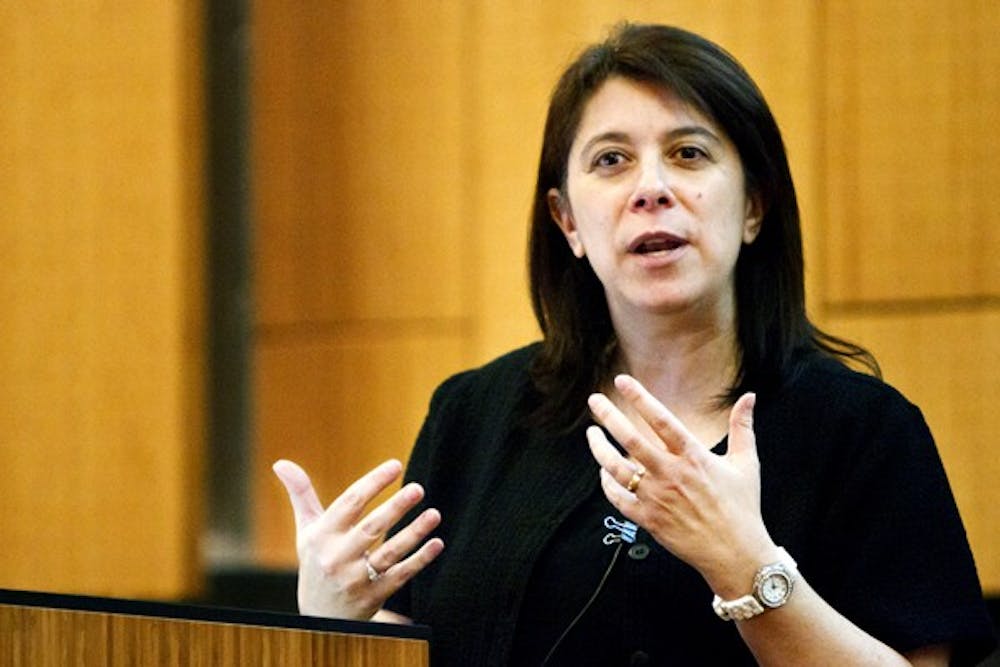Bullying expert calls for parents to take a more active role in their kids' lives
An expert on bullying called for parents to take more of an active approach in their children's lives on Wednesday.
Elizabeth K. Englander, director of the Massachusetts Aggression Reduction Center at Bridgewater State University, said parents are largely at fault for the epidemic in childhood bullying for giving cell phones to kids as early second and third grade.
“As future educators, we should know what we need to be sensitive to and what we need to think about," she said. "Don’t look for bullying as it is depicted on television. I want adults to know what they are actually looking for so that they can frame it and it becomes easier to spot it in the first place.”
Englander was brought in for the latest event in the annual T.R. Johnson Speaker Series, "Bullying in High School and Higher Education," sponsored by the College of Education and Human Services in the French Auditorium of the EHS building. Her presentation consisted of a series of slides and graphs, both introducing what “bullying” is and how it has impacted the lives of students.
Throughout years of research, Englander has studied these forms of bullying and their impacts within all levels of the education system.
“This is a very unique kind of topic to study,” she said. “It’s one of those things that happens in childhood that people have a tendency to never forget and to really carry with them.”
With her studies of child aggression and technology, Englander started MARC in 2004. This center provides programing and research that works with schools, parents, state legislatures and other groups to highlight the overwhelming occurrence of different forms of bullying within school systems. However, what makes MARC unique is the fact that the programs and information they offer are free, whereas similar seminars cost schools money to run.
“This was a big motivation to me when I started the program,” Englander said. “I wanted to get services down to children whose schools otherwise would never be able to afford this kind of programming.”
Within the presentation, Englander broke down cyber bullying and the different forms it consists of. Children, specifically females, tend to escalade to bullying others throughout middle school, high school and even into college.
“There is quite the need to do continued research,” said Dale-Elizabeth Pehrsson, dean of the College of Education and Human Services. “This seems to be pretty important, and this is really a major health issue for our country.”
Robert Pehrsson, professor of literacy at Idaho State University, stood by his wife’s argument that more needs to be done about the issues of bullying in schools.
“Teachers need to be more aware of this issue,” he said. “The only way to deal with it is through education. Do not be naïve as a parent or a teacher.”
Englander concluded that, though many digital problems begin in elementary school, the majority of cyber bullying happens during adolescence.




